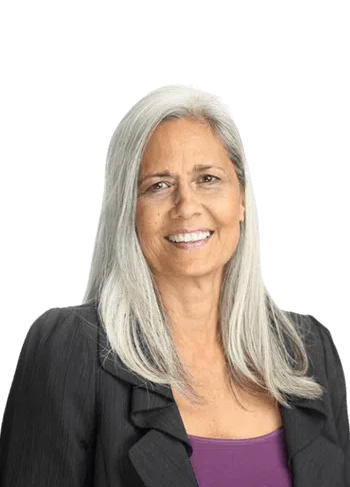Religious Trauma Therapy
 If you’re here, chances are you’ve experienced pain connected to religion that still lingers in your daily life. Many people who reach out to us describe feelings of guilt, shame, fear, or confusion that have stayed with them long after leaving or questioning a faith community. At Grief Recovery Center in Houston, we specialize in supporting individuals who are navigating the impact of these experiences through compassionate religious trauma therapy.
If you’re here, chances are you’ve experienced pain connected to religion that still lingers in your daily life. Many people who reach out to us describe feelings of guilt, shame, fear, or confusion that have stayed with them long after leaving or questioning a faith community. At Grief Recovery Center in Houston, we specialize in supporting individuals who are navigating the impact of these experiences through compassionate religious trauma therapy.
You may be wondering,
How do I know if I have religious trauma?
One common sign is when past religious experiences continue to create lasting feelings of fear, guilt, or self-doubt that interfere with your well-being. If you find yourself struggling to trust yourself, feel safe in relationships, or make peace with your values outside of a religious framework, therapy can help you begin to heal.
Our therapists in Houston offer a safe and judgment-free environment where you can process these experiences at your own pace. Here, you are heard, validated, and supported as you take steps toward reclaiming your sense of self.
What is Religious Trauma?
Religious trauma happens when faith experiences leave lasting emotional or psychological pain. It may manifest itself as ongoing guilt, shame, fear, feelings of worthlessness, or confusion that continues to affect daily life. While religious trauma is more common in high-demand religions, it can happen to anybody in any religion.
You’re not alone in this. Research from the 2023–24 Pew Religious Landscape Study reveals that many Americans change or leave the faith in which they were raised, which can lead to both freedom and deep emotional struggles. The table below highlights some of the most common groups and how many people raised in each tradition no longer identify with it:
| Religious Group Raised In | % of U.S. Adults Raised in That Group | % Who Have Left That Group | Notes |
|---|---|---|---|
| Christianity (overall) | ~60–64% | ~35% have left Christianity since childhood | Includes Catholics & Protestants |
| Catholicism | ~30.2% | ~43% have left Catholicism | Highest net losses among major groups |
| Protestant | ~40% | ~22% have left Protestantism | Includes Evangelical, Mainline, and Historically Black Protestant |
| Religiously Unaffiliated (“Nones”) | ~10% | Lower exit rates; most remain unaffiliated | Includes atheist, agnostic, “nothing in particular”; most remain unaffiliated |
Source: Pew Research Center. Religious Switching in the U.S. Results from the 2023–24 Religious Landscape Study. Published February 26, 2025. Read the full report | Download PDF
What Causes Religious Trauma?
How does religious trauma come to be? While many people can pinpoint specific experiences in their lives that lead to their trauma, not everybody can.
Religious trauma often comes from:
- Strict, authoritarian religious environments
- Fear-based teachings or threats of punishment
- Suppression of personal identity or doubts
- Spiritual, emotional, or social isolation
- Abuse by religious leaders or communities
These factors often lead to emotional pain and long-term mental health struggles.
How Religious Trauma Can Affect Your Life
Religious trauma can affect many areas of life, often in ways that feel overwhelming or hard to explain. Some common struggles include:
- Emotional challenges such as guilt, shame, fear, or anxiety
- Identity confusion or feeling unsure of who you are outside of past beliefs
- Strained relationships with family, friends, or faith communities
- Physical impact, including stress, sleep problems, and fatigue
Recognizing these struggles is an important first step. With the right support, healing and clarity are possible.
Healing Through Religious Trauma Counseling
Religious trauma therapy offers a safe and compassionate space where you can process your experiences without fear of judgment. Our trauma-informed approach is tailored to your unique needs and may include:
- Therapy methods such as talk therapy, CBT, EMDR, or IFS
- Unlearning shame-based messages that no longer serve you
- Rebuilding confidence and trust in yourself
- Clarifying your values and identity outside of rigid beliefs
- Exploring spirituality in a way that feels authentic to you
With guidance and support, counseling can help you move forward with greater peace and self-trust.
Benefits of Religious Trauma Counseling
Working with a counselor who understands the impact of religious trauma can bring meaningful changes to your life. Some of the benefits include:
- Emotional relief: Releasing the heavy burden of guilt, fear, and shame that often linger after harmful religious experiences, allowing space for greater calm and balance
- Restored confidence: Rebuilding a sense of self-worth and learning to trust your own inner voice, so decisions feel more authentic and empowering
- Healthier relationships: Developing stronger boundaries and learning to connect with others in ways that feel respectful and supportive, without the pressure of old patterns
- Clarity and peace: Finding direction and freedom to live in alignment with your personal values, rather than ones imposed by rigid belief systems
Through compassionate spiritual counseling, you can take meaningful steps toward healing and living with greater strength and confidence.
Meet Your Houston Religious Trauma Therapist
At Grief Recovery Center, you’ll work with highly trained, licensed mental health professionals who understand the unique challenges of religious trauma. Each member of our team is dedicated to providing compassionate, non-judgmental care for adults, adolescents, couples, and families.
Our therapists bring both professional expertise and a profound understanding of how diverse religious backgrounds can influence a person’s experiences. This enables us to provide counseling that is sensitive, respectful, and tailored to your unique needs.
Our team includes:
Frequently Asked Questions About Religious Trauma Counseling in Houston
Some of the most common questions we hear, along with answers to help you feel more informed and supported, are included below.
Why Choose Grief Recovery Center
When searching for religious trauma therapy near you, it’s important to find a practice that truly understands this unique form of trauma. At Grief Recovery Center, our licensed counselors and mental health professionals combine trauma expertise with sensitivity to the impact of religious and spiritual experiences.
We provide care that is inclusive, compassionate, and non-judgmental. Whether you are seeking religious trauma counseling, spiritual counseling, or general support for faith-based trauma, we meet you where you are and tailor our approach to your specific needs.
With an office conveniently located in Houston and virtual counseling options available across Texas, Michigan, Colorado, and Kansas, you can access the support you need in the way that works best for you.
Begin Your Healing Journey Today
Taking the first step toward recovery can feel overwhelming, but you don’t have to do it alone. Religious trauma counseling offers you a safe, supportive space to process your story and move forward at your own pace. Our counselors are here to listen, guide, and encourage you as you release old burdens and rebuild your sense of self.
Contact us today to schedule a consultation or ask any questions you may have. Healing is possible, and your journey toward peace and authenticity can start now.









 Call
Call
 Schedule
Schedule
 Contact Us
Contact Us
